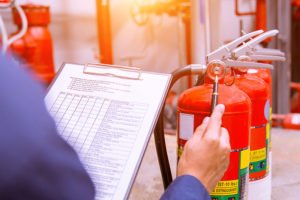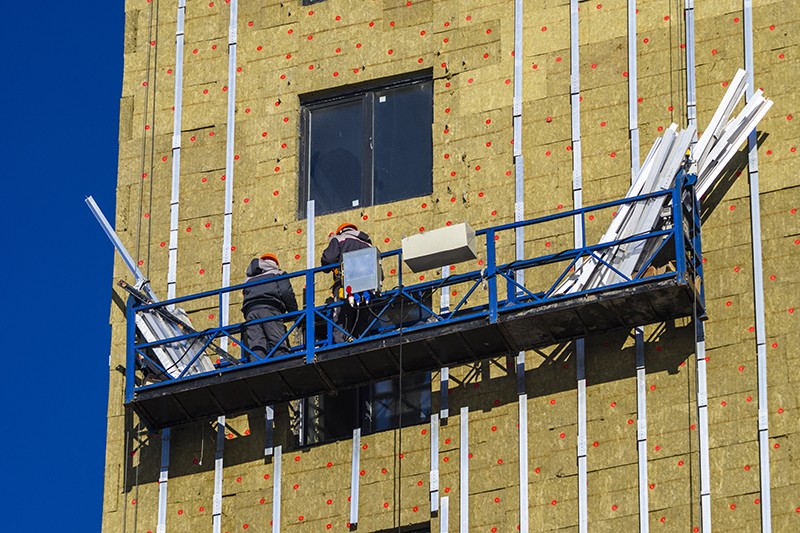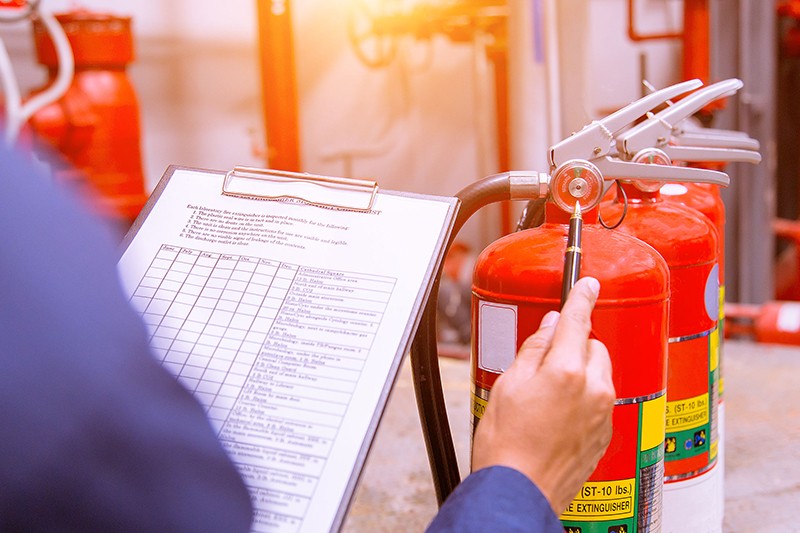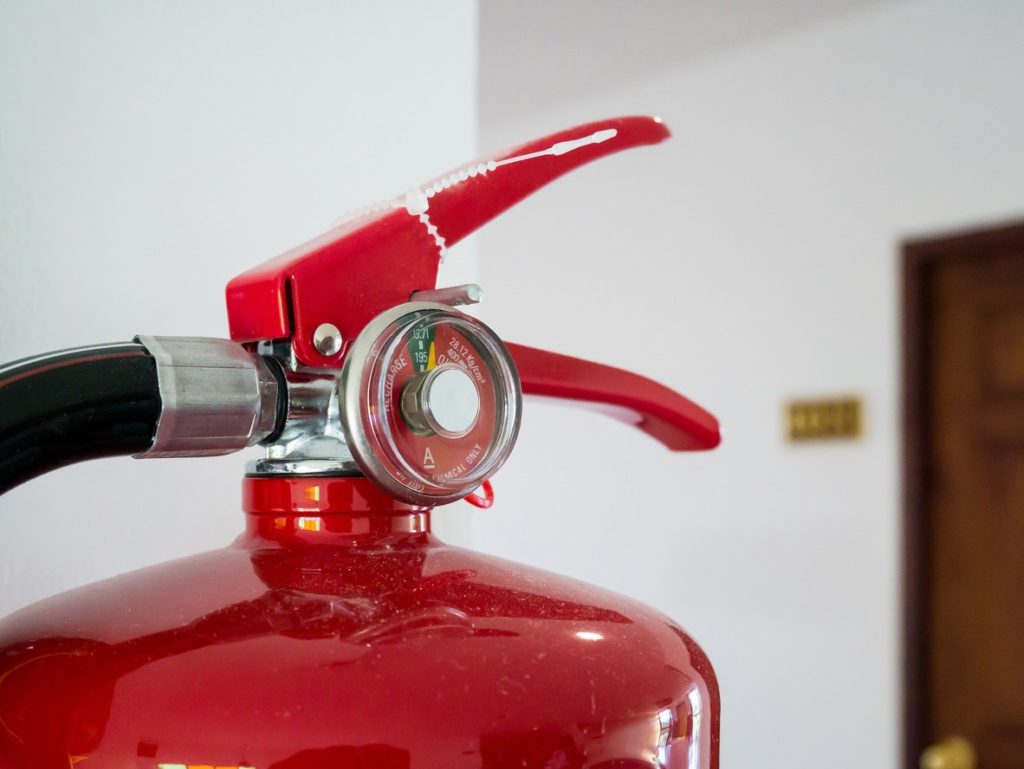On the 19 March 2020, The Home Office introduced the new Fire Safety Bill, in an effort to improve fire safety in buildings in England and Wales. The Bill has passed through the parliamentary process to become law – The Fire Safety Act 2021.
Following several attempts by Peers in the House of Lords to amend the Fire Safety Bill with a clause prohibiting remediation costs, such as dangerous cladding, fire doors and insulation systems, from being passed on to residents, the Bill took some time to pass through the parliamentary process. The amendments were rejected by the House of Commons five times in total.
The Bill has now received Royal Assent and is an Act of Parliament – The Fire Safety Act 2021.
What is the Fire Safety Bill (Fire Safety Act)?
Set to amend the Fire Safety Order 2005, the Fire Safety Act 2021 (as it is now known) has been designed to “ensure that people feel safe in their homes, and a tragedy like the Grenfell Tower fire never happens again” in England.
The Home Office has set out clarification to who is accountable for reducing the risk of fires – the duty-holder/building owner for multi-occupied, residential buildings. They must manage the risk of fire for:
- The structure and external walls of the building (e.g. cladding, balconies and windows)
- Entrance doors to individual flats that open into communal areas
The fire risk assessment for a building/premises will therefore be required to cover both of these two areas. At a Barbour EHS webinar in March, Matthew Canham from the National Fire Chiefs Council highlighted the Bill is likely to affect around 1.7m residential properties in England and Wales, with a significant impact on workload for fire risk assessors needing access to balconies, doors etc., as well as the overall construction/refurbishment processes.
The Fire Safety Act is also designed to provide a foundation for secondary legislation which won’t require another Act of Parliament, based upon the recommendations made from the Grenfell Tower Inquiry. Extra measures may include responsibility for lift inspections, the reviewing of evacuation plans and fire safety instructions to residents.
It is applicable to England and Wales only.
For more on the Fire Safety Act, visit our sister site, IFSEC Global.
Prohibiting remediation costs and parliamentary ‘ping pong’ – what happened?
It has been widely reported that some homeowners are facing bills in the hundreds of thousands of pounds as a result of fire safety concerns, while insurance costs are also rising significantly.
The original proposals from the House of Lords, the Labour Party and a number of Conservative backbenchers to amend the Fire Safety Bill were rejected after a vote in the Houses of Parliament on 24 February. The Bill went through several stages of ‘ping pong’ throughout March and April.
In April, the Bishop of St Albans noted that he was aware of the “nuisance and that people are fed up…However, the consequences of this legislation have a huge impact on leaseholders…[and] as things stand, the promised grant and loan schemes are not even operational.”
Amendments that were also originally defeated also included a proposal to force the Government to implement a recommendation from Phase 1 of the Grenfell Tower Inquiry, whereby building owners must communicate what materials are used in wall systems to fire brigades, as well as monthly inspections of lifts and yearly inspections of fire doors.
Those who voted down the amendments noted that they were “not sufficiently detailed” and “could delay repairs”, with the question of who should pay for repairs to be dealt with in the forthcoming Building Safety Bill, according to a report from The Guardian. Shadow Fire Secretary, Sarah Jones, called the “Gov narrative total nonsense”, when referring to ministers highlighting the need to move the Bill forwards and prevent further delays, saying amendments were simply trying to “ensure leaseholders don’t pay and speed up Grenfell recommendations”.
Sir Keir Starmer, Leader of the Labour Party, tweeted his disapproval of the decision shortly after the first amendment defeat in the Commons, calling the decision to vote against putting “vital Grenfell Inquiry recommendations” into law “shameful”.
The news has been described as “indefensible”, by Grenfell Tower survivors and bereaved relatives.
Lawyer Steph Pike, a leaseholder of a one-bedroom flat in Bristol, told the BBC she could be facing a £70,000 bill next year to cover the cost of improvement work to her building.
She said the situation was “completely unbelievable” and said some days she asked herself: “Is this even happening?”
“I’m a lawyer, so I’ve got a professional qualification that I need to protect and if I have to declare myself bankrupt I’ll lose that, so I’ll also lose my career.”
What does the Fire Safety Bill and Building Safety Bill mean to you?
Listen back, on-demand, as Matthew Canham, Fire Engineer – NFCC Building Safety Programme Team, National Fire Chiefs Council focusses on two key peice of legislation and how they impact your business.
Click here to register for ‘What does the Fire Safety Bill and Building Safety Bill mean to you?’
Safety & Health Podcast
Subscribe and tune in the Safety & Health Podcast to discover the latest issues facing the health and safety profession, and stay on-top of the developments affecting your role, from working at height, lone working and common workplace hazards, to safety culture, behaviours, occupational health and mental health and wellbeing.
In the episode below, we hear from Gill Kernick about the pressing need to improve building safety culture post-Grenfell.










To hell with trading standards, consumer rights, misrepresentation, sub-standard products dump the fault on the unsuspecting victim criminal negligence.
Perhaps it was an Act of God so, no chance of building insurance coping the cost of repair or replacement regardless of the product being an economic right-off what, what….